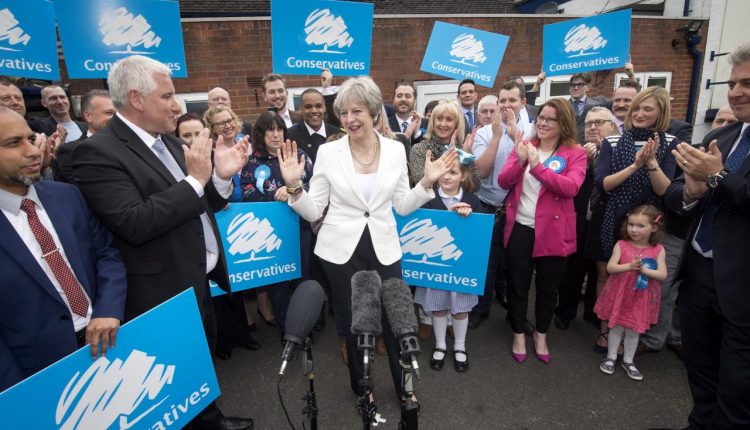British PM May avoids London wipeout in local elections
Prime Minister Theresa May’s Conservative Party avoided a wipeout in London local elections and eked out gains in Brexit-supporting regions elsewhere, results on Friday showed, denting the opposition Labour Party’s hopes of a big win.
The elections are a gauge of public support for May as she faces a possible revolt in parliament over her strategy for leaving the European Union.
With almost all results declared, May had avoided the widespread losses that would have weakened her authority over Conservative lawmakers ahead of tests of her plans to take Britain out of the EU customs union as it quits the bloc.
“These results are as good as any government party after eight years in power could expect,” said Tony Travers, a professor at the London School of Economics Department of Government.
“They’ll be a relief for May and the Conservative Party as a whole because they’re suggestive that, despite the fact the Conservatives are in an on-and-off civil war over Brexit, the Labour Party’s problems are possibly worse.”
Against a backdrop of heightened expectations for Labour, Thursday’s ballot also hinted at the limitations of its recent resurgence under veteran socialist Jeremy Corbyn.
CONSERVATIVE BASTION HOLDS
May’s party kept control of Wandsworth council – a low-tax Conservative stronghold since the time of late prime minister Margaret Thatcher that had been one of Labour’s main targets.
“Labour will have to do far, far better than this in local elections in future to suggest they are convincing the electorate more generally,” Travers said.
The makeup of 150 local government authorities, responsible for the day-to-day provision of public services, was at stake.
The Conservatives also held on to Westminster, London’s political district, indicating that their losses in the capital would come in at the lower end of the predicted range.
May, appearing relaxed and smiling, visited Wandsworth on Friday morning. “Labour thought they could take control, this was one of their top targets and they threw everything at it, but they failed,” she said.
Ruling parties typically suffer at local elections and surveys had predicted losses in London for the Conservatives after eight years in power. May is negotiating an exit from the EU that 60 percent of the capital rejected at the 2016 Brexit referendum.
Results elsewhere in London’s 32 boroughs showed only a small swing to Labour, unlikely to give May a serious headache.
Corbyn has endured fierce criticism over the handling of anti-Semitism within his party. Critics also say he misjudged his response to military action in Syria and a row with Moscow over the poisoning of a former Russian spy in southern England.
Despite intensive campaigning, Labour saw the Conservatives win back control of the London borough of Barnet, which has the largest Jewish population of any single council area.
DELIVERING BREXIT
Outside London, the Conservatives regained control of councils in the pro-Brexit regions of Peterborough and Basildon, largely at the expense of the anti-EU UK Independence Party.
UKIP has suffered leadership issues and struggled for new purpose since achieving its main aim at the 2016 referendum.
“The Conservative Party has been reminded tonight that the electorate that it now has is disproportionately a ‘Leave’ electorate,” polling expert John Curtice told the BBC.
“Therefore, above all, it seems to me that what the Conservative Party has to be able to do in the coming weeks and months is to deliver on Brexit in a way that will satisfy the aspirations of ‘Leave’ voters.”
May’s party did lose control of the highly prized council in the Trafford area of the northern city of Manchester – its only foothold in a important economic region, dominated by Labour, where the Conservatives have spent years trying to win support.
The results offer the most complete snapshot of public opinion since an election last year in which the Conservatives suffered unexpected losses, leaving May weakened and her party arguing openly about Brexit.
In a national parliamentary election, the results would translate to a hung parliament, with Labour holding 283 seats, compared with the Conservatives’ 280, but falling short of an outright majority, according to a BBC projection.
The Conservatives also lost control of two south-west London councils – Richmond-upon-Thames and Kingston-upon-Thames – which backed remaining in the European Union in 2016 and were won by the pro-European Liberal Democrats.
May will remain under pressure from rival Conservative factions: those who want to keep close ties with the EU by staying in the customs union, and others who say anything short of a clean break is a betrayal of the Brexit referendum result.


